Youth Power: Driving Immunization Success in Niger’s Most Challenging Districts
Summary
This story highlights the innovative strategies and youth-led initiatives that are driving immunization success in Niger's most challenging districts through the Kariya initiative.
Youth Power: Driving Immunization Success in Niger’s Most Challenging Districts
Kariya Initiative Case Story: Strengthening community engagement for immunization in Niger through youth-led initiatives
With the intention to convert the series of successful and periodic collaboration with youth-associations, into a UNICEF-supported youth movement, UNICEF Niger, with BMGF Plus polio funding, supported the Ministry of Health to roll out the Kariya initiative aimed at strengthening community engagement through youth-led initiatives. 180 Youth Volunteers including 80 girls drawn from 18 community-based youth organizations were mobilized, empowered, and engaged to challenge social and behavioural barriers that hindered uptake of immunization services by community members in 09 nomadic, desertic and unsecure health districts.
Kariya Initiative
The Kariya Volunteers drawn from the targeted health districts were trained in human-centered design and behavioural design to equip them with the appropriate skills to mount localized and community-centered interventions for sustainable social change. Based on the social and behavioural drivers underlying non-vaccination of children in the nine health districts identified through Kobo collect social surveys, the young volunteers co-created with parents of children aged 0 to 23 months and health committees nine innovative solutions to the challenges related to vaccination.
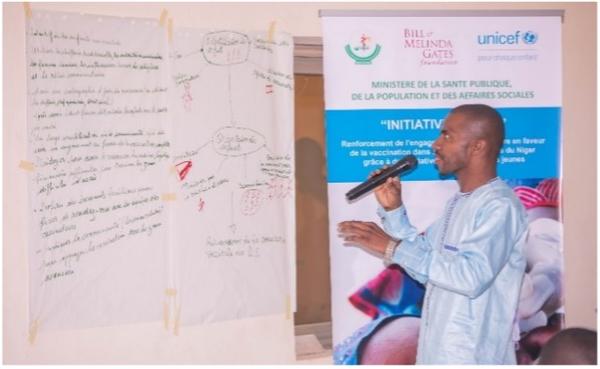
Youth Engagement
As a result of youth-led community engagement interventions, the action carried out by the 180 young volunteers in collaboration with community health workers resulted in the verification of the vaccination status of 120,474 children at the household level leading to the identification and referral of 39,102 children including 11,670 zero dose months and 27,432 insufficiently vaccinated children aged 0-23. Among the referred children, 31,945 children have been up (including 13,087 zero dose and 18,858 insufficiently vaccinated) caught up with also 6,978 children who received their birth certificates over the 7,369 referred thanks to youth and community led actions.
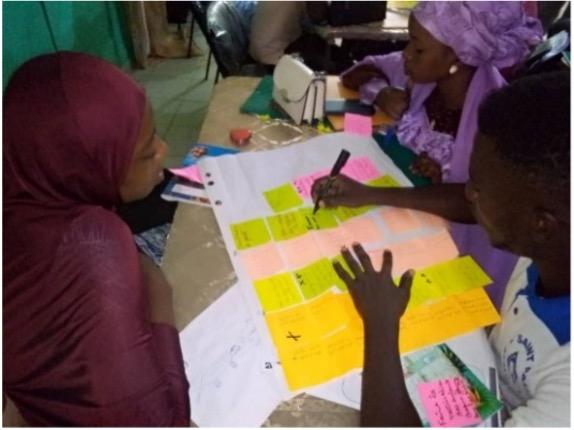
Digital Campaign
The digital campaign reached over 5,181,009 people to become more actively involved in their children’s health and the fight against polio. The campaign that ran on 5 social media networks [Facebook, Instagram, Twitter, TikTok and WhatsApp and on the phone via SMS], with the involvement of 20 young influencers, received an overwhelming response as parents marked their positive commitments by making use of powerful hashtags [#Parentalité Positive; #Karya; and #LesVaccinsCaMarche]. Calls to action were launched by young volunteers and digital influencers via digital platforms such as U-Report Muryar Matassa, Facebook, WhatsApp, Instagram, and LinkedIn to share information and commit to vaccinating children.
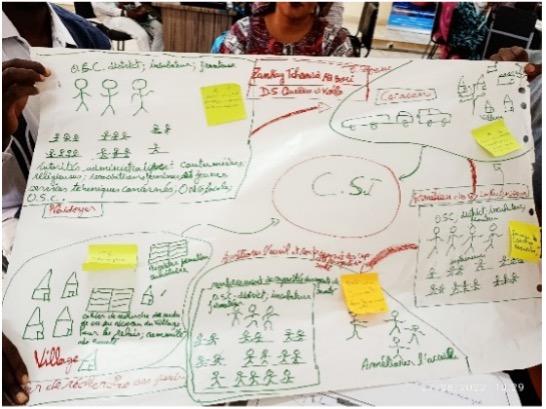
Strengthening the Community Ecosystem
Strengthening the community ecosystem with the establishment/revitalization of health committees, the Kariya initiative built on 179 community monitoring committees and 46 monitoring committees around integrated health centres in the 9 target health districts to support vaccination, surveillance of side effects of vaccination and the promotion of the utilization of basic social services. Kariya volunteers networked with these community actors to boost the demand for immunization and basic social services.
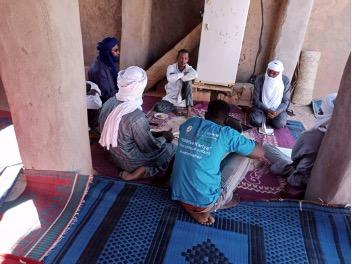
In Zinder, one of the participating 9 health districts, developed a project called "tattalin lafiya yara" [health care for children] whose mandate is to raise awareness among the population on the significance of vaccination by integrating new monitoring strategies using information and communication technological tools that remind care givers on due dates to vaccinate children.
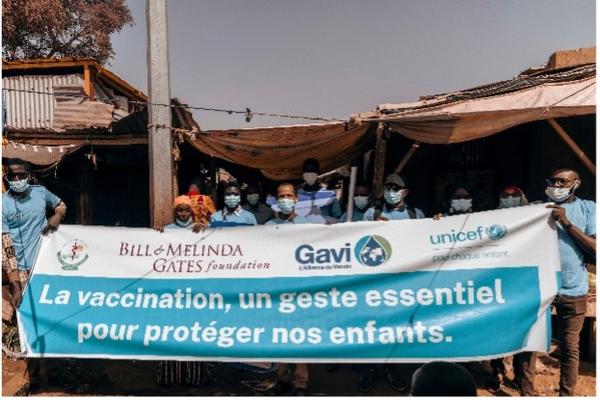
Conclusion
A partnership with 35 community-based and private television stations was sealed to support the promotion of children's rights, including immunization. All community radio stations broadcasting in the areas of intervention of the Kariya initiative were mobilized to support the youth volunteer’s social mobilization efforts to promote vaccination, strengthen community engagement and amplify the actions carried out by young volunteers. Apart from organizing community dialogues and debates, the Youth volunteers spread their innovative solutions via community radio spanning nine districts. They promoted immunization, engaged influencers, and invited their peers and community role models to report on their actions related to vaccination promotion.
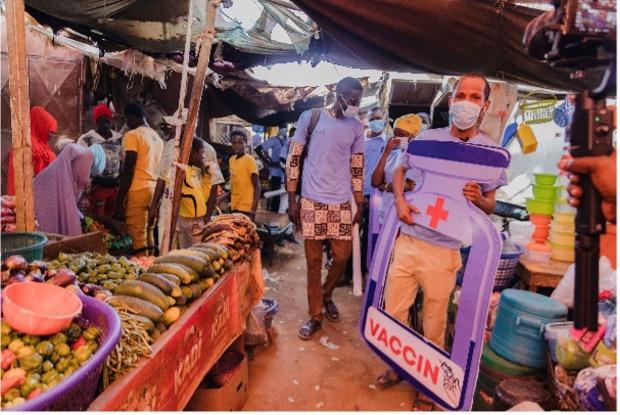
UNICEF Niger, through the Kariya initiative, is investing in the digitalization of SBC data collection and use by setting up two digital platforms to collect basic socio-behavioural data with a view to adapting interventions during implementation. Data on barriers to immunization services and parents' attitudes were used to guide tea debates and community dialogue sessions carried out by youths. The Kariya initiative included Data for Action sessions to close the feedback loop, using community feedback and evidence from rapid social surveys collected through Kobo collect to gather social and behavioural data which helped young people organize community dialogues and fadas to urge parents to fully vaccinate their children and ensure they acquired birth registration certificates when applicable. The first-ever series of socio-behavioural data surveys focusing on immunization through the Kobo Collect platform were launched. This was made possible through a workshop organized in November 2022 to strengthen the capacity of Kariya young volunteers to use existing online and offline data generation platforms.
A gamification approach is also being used to promote immunization by rewarding the most engaged young volunteers and caregivers with respectively certificates and baby gift sets to keep them motivated and provide social support to SBC to vaccine every child in Niger.

